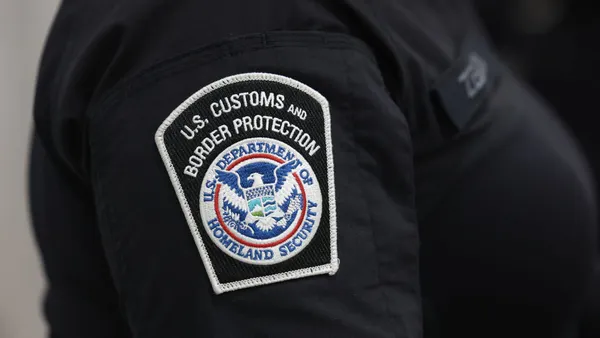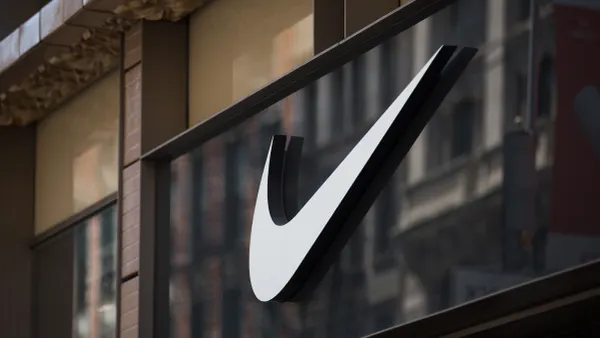Dive Brief:
- Ralph Lauren will track all Polo products through the supply with a new digital identification system, according to a press release. The program will expand to the entire Polo line over time, eventually covering tens of millions of products.
- Manufacturers will sew QR tags into garments adjacent to the traditional branded tags, and from that point on, the garments will be digitally attached to a purchase order and tracked through the supply chain.
- Consumers will be able to scan the tags to gain authenticity information, product details and styling tips for the item. Ralph Lauren's supply chain managers will be able to better manage inventory and improve distribution with the increased inventory traceability, a Ralph Lauren spokesperson told Supply Chain Dive.
Dive Insight:
Ralph Lauren says it is the first global retail brand to apply this type of technology at scale. Though similar efforts are progressing in food and fine jewelry, the fashion industry has not yet embraced this kind of piece-level traceability.
The technology, orchestrated with IoT platform EVRYTHNG and technology partner Avery Dennison, presents benefits for multiple supply chain stakeholders, including Ralph Lauren customers.
Counterfeits are a problem for retailers, brands and consumers. IoT technologies are particularly equipped to help with enforcement in this area according to the Boston Consulting Group. "Although no solution can be fully foolproof, smart tags capture the complete genealogy of a product and are hard to replicate," a May BCG report said.
Ralph Lauren's QR codes will serve essentially as a mark of authenticity, if they scan successfully.
Beyond counterfeits, digitally tracking PO's of clothes will grant Ralph Lauren a new level supply chain visibility from which it can glean greater efficiency and gain a more granular view of operations at the supplier level.
The program will provide "...The company with real-time visibility into factory/vendor performance, enabling it to adjust as needed to support on-time deliveries," concluded a World Economic Forum white paper on advanced manufacturing technologies featuring the scheme.
Ralph Lauren is also at the beginning of ambitious journey in which the brand intends to sustainably source 100% of its cotton and viscose and use 100% recycled polyester by 2025.
The brand set further goals for the sustainable sourcing of viscose, down, wool, leather and cashmere too. Closely monitoring and verifying the materials used to make Ralph Lauren clothing could be an important enabler in meeting these goals and increased visibility on the manufacturing floor can only help.
Correction: An earlier version incorrectly stated consumers will receive point-of-production information from scanning the QR codes.














